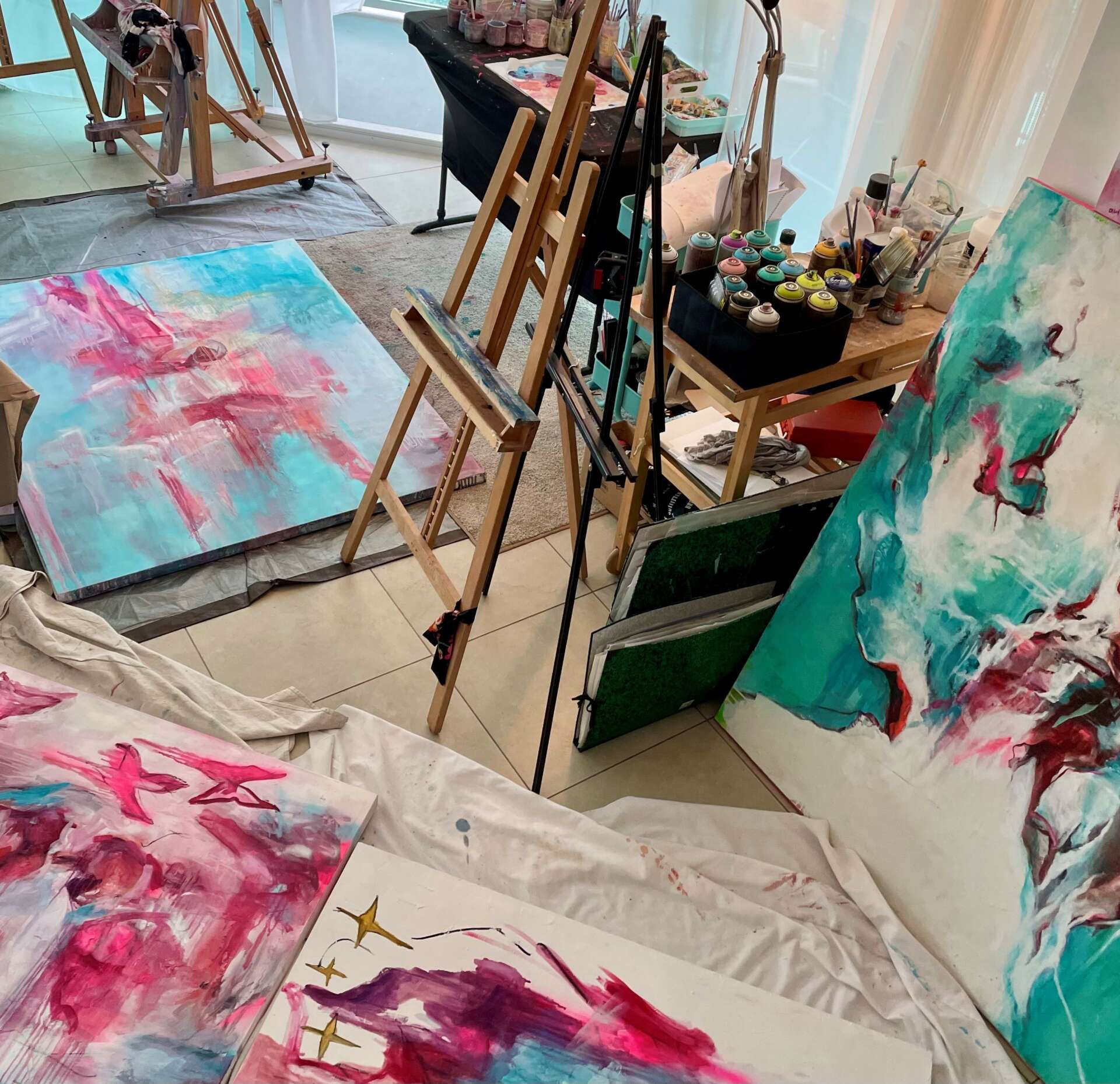We were lucky to catch up with Sandra Encaoua recently and have shared our conversation below.
Sandra, appreciate you joining us today. What’s been the most meaningful project you’ve worked on?
It’s essential that my projects make sense, that they allow me to further my thinking. One of my series is particularly meaningful to me: my Judaica painting series. It asks me about history, my family’s history, the history of which I am the heir. As the granddaughter of deportees, I’m deeply concerned by human nature, its capacity for evil and, above all, its capacity for good. All these questions are reflected in my work.


As always, we appreciate you sharing your insights and we’ve got a few more questions for you, but before we get to all of that can you take a minute to introduce yourself and give our readers some of your back background and context?
It was with this series that I started painting. Some things take up so much space inside us that we have no choice but to express them, to free ourselves from them. And when we can’t really ‘speak’, we try to express ourselves as best we can. In that sense, art has been a catharsis for me. You know Edward Hooper’s famous phrase: “If I could say it in words, I wouldn’t need to paint it”. That certainly sums up what connects all artists: the possibility of ‘saying’ something other than in words. Then there’s the resonance or otherwise with the viewer. One of my proudest moments was when a lady visiting one of my exhibitions in Paris stopped for a long time in front of one of my paintings from the Judaica series and started crying. I had succeeded in touching another person by sharing my emotions and questions. And the journey goes on…


Are there any books, videos, essays or other resources that have significantly impacted your management and entrepreneurial thinking and philosophy?
I’ve just finished reading Fabienne Verdier’s book, the story of her initiation to art in China in the 80s. In addition to being extremely rich in terms of content, landscapes and techniques, this account approaches art in terms of philosophy and spirituality. One passage particularly struck me: a great Chinese master explains to his disciple that the only thing that can change the course of history is art. Because it’s a way of changing mentalities, of proposing, or rather imposing, an opening onto an elsewhere. There’s not much left of political action, but there will be essays, poems, the wheel, the clock… Reading these lines has reassured me. So often, one wonders what the point is of fighting for one’s art in a world that doesn’t seem to need it.

What can society do to ensure an environment that’s helpful to artists and creatives?
In this sense, it’s vital to support artists and art. In a world lacking meaning, this openness to another world or other places enables us to live better, to ask ourselves the real existential questions, to choose our life. We have to stop thinking of art as a ‘pastime’, a useless thing. In today’s society, art seems useless, whereas it’s perhaps the only thing that allows us to live, that brings happiness to those who look at it, but above all to those who propose and share their art, their vision of the world. Art brings people together instead of dividing them. It builds bridges, not walls.

Contact Info:
- Website: www.encaweb.com
- Instagram: www.instagram.com/sandraencaoua/
- Facebook: www.facebook.com/Sandraencaoua/
- Linkedin: www.linkedin.com/in/sandra-encaoua-berrih-33695595/


